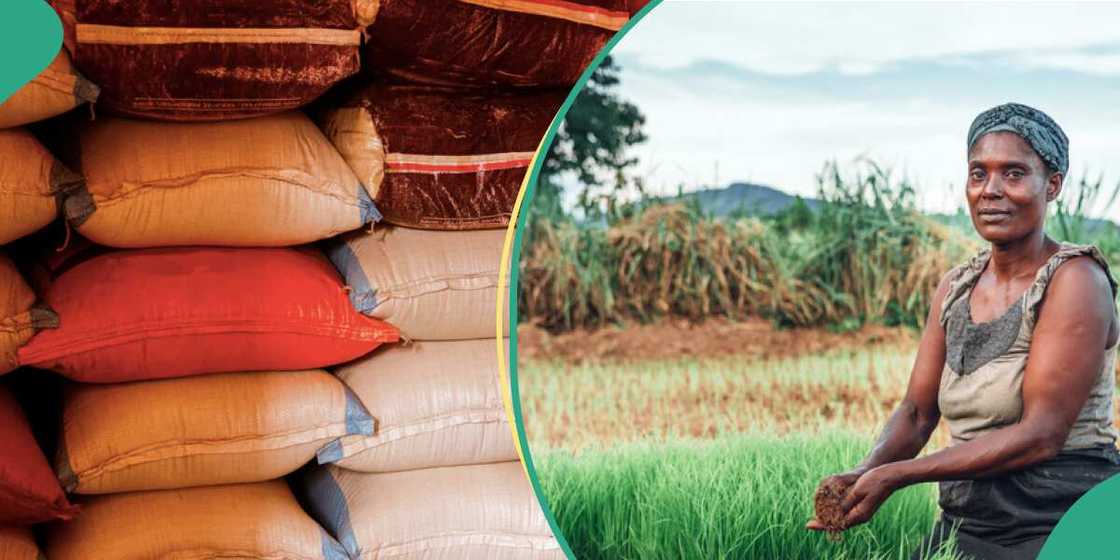“We Are No Longer Milling”: Millers Explain Why Price of Rice Continues to Rise, Suggest Solutions
- Rice millers in the Gombe state have attributed the increased cost of rice to hoarding
- They accused middlemen of storing paddy in their their warehouses to put pressure on the few available grain
- They said that the situation has caused a lot of people in the region to be jobless because there are no paddy activities
Legit.ng journalist Zainab Iwayemi has over three years of experience covering the Economy, Technology, and Capital Market.
Rice millers in Gombe state have blamed merchant hoarding for the rise in the cost of the product, which has hindered the availability of paddy for processing.

Source: Getty Images
Speaking in Gombe, the millers expressed frustration at the state of affairs.
The Sun reported that the rice millers claim middlemen, accused of buying paddy and storing it in their warehouses at the expense of Nigerians, are exerting pressure on any remaining available grains.
PAY ATTENTION: Click “See First” under the “Following” tab to see Legit.ng News on your Facebook News Feed!
No sufficient paddy brand rice
According to Auwal Manu, the manager of Lula Rice Production, the lack of paddy-brand rice has caused the price of rice to nearly double in the previous three weeks.
Manu claims there is a shortage of paddy and that the available paddy is under a lot of pressure since intermediaries mopped paddy brands during the 2023 harvest and wouldn't let them go on sale.
He said this led to the increasing price of rice as those who have paddy now determine the price they want their commodity sold.
Manu said:
“This has affected and halted production in our company because paddy is the primary raw material for rice processing venture.
“A bag of paddy now is about N50,000, which cannot give you 50kg of processed rice, so how does one continue business and make a profit? Before now, a bag of paddy was sold for between N15,000 and N20,000, but now it goes for N47,000 or higher.
“Weekly, we used to process at least three truckloads of rice, which is 1,800 bags of 50kg rice, but today, for the past two months, we have halted production.”
Manu stated that until the company receives enough paddy to process, its employees have been ordered to remain at home.
He pleaded to the federal government to step in, prosecute food hoarders, and boost funding for agriculture during this year's rainy season to enable farmers to produce more.
According to a rice processor in Nasarawo Industrial Layout, Gombe, Musa Arab, hoarders' activities, insecurity, and the loss of subsidies are the three leading causes of the growing price of rice.
Arab, a large-scale rice farmer, also claimed that the loss of subsidies increased cultivation costs, making it unaffordable for many local farmers.
According to him, security concerns forced many farmers to give up on their farms, leaving only a few to grow the crop. To make matters worse, intermediaries take advantage of the little produce grown.
He said:
“I think the government should urge big rice companies to set up their farms and go into farming instead of bringing big money to buy off paddy from local farmers so they can be in business all year round."
Yusuf Abdullahi, another miller at Gombe's main market, claimed that several middlemen were already preparing to attack communities to remove paddy grown by farmers during the dry season.
According to Abdullahi, this would exacerbate current affairs, necessitating implementing punitive measures against hoarding since it worsens misery and the nation's unemployment rate.
He said:
“For now, we are no longer milling because there is no paddy and many of our workers are now at home without jobs; it has never been this bad.”
Meanwhile, the federal government recently commenced a massive production of food crops in its bid to bring down the prices of food items across the country.
Nigerians groan as rice price hits N77,000 per bag
Legit.ng reported that Nigerians in their millions are now adopting severe cost-cutting measures to cope with the hardship caused by the astronomical rise in the prices of goods and services in the country.
Analysts say the arrowhead of the recent inflation figures is food inflation, which has eroded household incomes in recent months.
The volatile exchange rate system exacerbates the situation, which makes food imports challenging.
PAY ATTENTION: Stay Informed and follow us on Google News!
Source: Legit.ng


